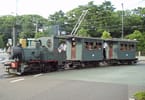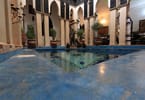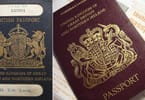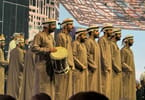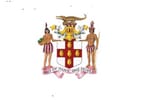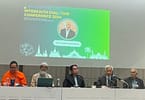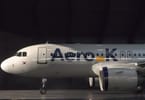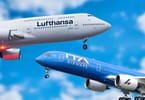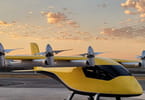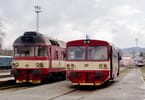Negotiations are in hand to open up new air routes that would link Malta to various other destinations currently serviced by neither Air Malta nor the low-cost airlines, Parliamentary Secretary for Tourism Mario de Marco has said on Sunday.
Without going into detail, Dr de Marco explained that increasing seat capacity on existing routes is a hard job, partly because the government does not want to in any way negatively affect Air Malta.
But it is possible to find new catchment areas of tourists who, at present, need to catch a train or two aircraft to travel to Malta. Providing them with the possibility of having a direct flight from their nearest airport would make travelling to Malta more attractive.
Several new routes have started in the past months or are expected to start shortly. Madrid, Edinburgh, Bristol, Newcastle and Trapani are among the cities that are now served by direct flights, and Liverpool, Oslo, Copenhagen and Leeds are expected to join them next year.
“There has been an overall decline in seat capacity worldwide, but Malta managed to register a marginal increase during summer,” Dr de Marco said.
The fall in the number of arrivals this year has been more or less in line with expectations, considering the difficult year it has been for the industry in the prevailing international financial crisis.
“We have registered a fall of nine per cent in the number of travellers, while the number of bed-nights has dropped slightly more because people opted for shorter holidays. Expenditure went down by 12 per cent because holiday-makers spent less,” he said.
Destinations competing with Malta, such as Spain, Cyprus and Portugal, have experienced similar falls. Increases in North African destinations were registered because British people tended to go to non-euro countries as a result of sterling’s unfavourable exchange rate with the euro.
“In 2008, we had a record year, and so it is clear that the decline registered because of international circumstances was quite substantial. Yet compared to 2007, the number of tourists declined by just 3.5 per cent,” Dr de Marco said.
The worst blows were received in the first six months of the year, when many conferences were cancelled. People who had their second or third holiday in the winter months chose to stay at home or travelled to nearby destinations within their own country.
Things started to pick up in the summer. “By mid-July, August was not looking good but late bookings helped to turn things around. The last months of the year were also showing signs that things have improved,” he said.
In this difficult scenario, the government and the MTA realised that the strategy to market Malta needed a further boost. The number of days in which Malta was advertised in foreign countries increased, and this had a positive effect because, in summer, Malta registered the smallest fall in the number of incoming tourists from the UK from among Mediterranean countries, whereas there was a 10 per cent increase in numbers from Italy, possibly because the Italians preferred a holiday closer to home instead of flying to Asia or America.
Asked about the prospects for 2010, Dr de Marco said that one has to be very cautious. “Tourism is a volatile industry; it can change overnight. The recent financial crisis in Dubai is a case in point,” he said.
“We will still have problems. What I can say is that the decline is slowly being neutralised and hopefully things will get better soon. One of our aims next year is to continue working on increasing the number of arrivals, and this is why it is healthy to have new routes. In this way, the number of bed-nights being lost because of shorter holidays will be made up for through an increase in arrivals.”
It must be remembered that 98 per cent of Maltese hotel rooms are taken up by foreigners, whereas in Europe 48 per cent of hotel rooms are taken up by people travelling within their own country. This makes it imperative that tourists continue to be attracted to Malta, as it is the only way hotels can survive.
“Malta is one of the very few countries where the number of tourists every year is three times as much as its population. Yet, if the number of bed nights continues to decline, this must be compensated for with more arrivals; and this is why the government is working hard to attract more low-cost airlines to operate to and from Malta, or to increase the number of routes operated by low-cost airlines which already have Maltese connections,” said Dr de Marco.
One way of increasing the number of arriving tourists is through the organisation of events in the winter and shoulder months, and in this respect, local councils could be of considerable help. Some, like Vittoriosa, have already taken the cue and organised activities in their area – attracting both tourists and Maltese people. Others seem to have realised the potential of these events and are now organising their own.
Next year, 52 local councils will get support to organise events in their locality. These will be held between January and June, and between October and December, which means that there will be weekends with more than one activity. These events bring out Maltese traditions and culture and there are many tourists who look out for these events on the internet and book their holiday accordingly.
Considering that 55 per cent of tourists come to Malta on their own, mostly via personal booking often made through the internet, such activities in the weaker months should be marketed well, Dr de Marco said. The government is offering its financial and organisational support to local councils wishing to hold public events in their area.
Another tourist area that saw a decline in 2008 was the cruise-liner industry, but it is being predicted that there will be a slight increase next year and a big surge as from 2011 onwards.
Dr de Marco said that, as from 2011, TUI cruises will use Malta as their home port for cruises in the eastern and western Mediterranean, and this will mean that other ancillary services related to tourism will be benefiting. “Tourists will be flying in to start their cruise from here, and then they will be flying out when the cruise finishes. We are working hard to hopefully encourage them to spend one or two nights in Malta before or after their cruise,” he added.
Malta has the advantage of offering so much in so small a space. “We have so much history and heritage on display. Our mild climate helps too. It would be a mistake to simply say Malta has sun and sea. It would also be a mistake to say that we offer only culture. It is the right mixture of the two that gives Malta the edge. People can enjoy the beach in the morning and spend the evening in Mdina.”
Added to this, there should be a greater effort to take tourists to villages and towns that are not normally associated with tourism, and not only for the local council activities mentioned earlier. “Places like Siggiewi, Zebbug and Zejtun have so much to offer their visitors,” he said.
The regeneration of Valletta will give a new lease of life to the capital city. Apart from the City Gate project, Dr de Marco mentioned the lift that will be constructed between lower Valletta and the Upper Barrakka garden as being vital.
“Ninety-eight per cent of tourists visit Valletta, but a much smaller percentage visits the seaside or the port area. The lift would encourage them to visit this part of Valletta as well. Added to this, tourists arriving via the harbour will have easier access to the heart of the capital city.”
WHAT TO TAKE AWAY FROM THIS ARTICLE:
- The number of days in which Malta was advertised in foreign countries increased, and this had a positive effect because, in summer, Malta registered the smallest fall in the number of incoming tourists from the UK from among Mediterranean countries, whereas there was a 10 per cent increase in numbers from Italy, possibly because the Italians preferred a holiday closer to home instead of flying to Asia or America.
- The fall in the number of arrivals this year has been more or less in line with expectations, considering the difficult year it has been for the industry in the prevailing international financial crisis.
- One of our aims next year is to continue working on increasing the number of arrivals, and this is why it is healthy to have new routes.




